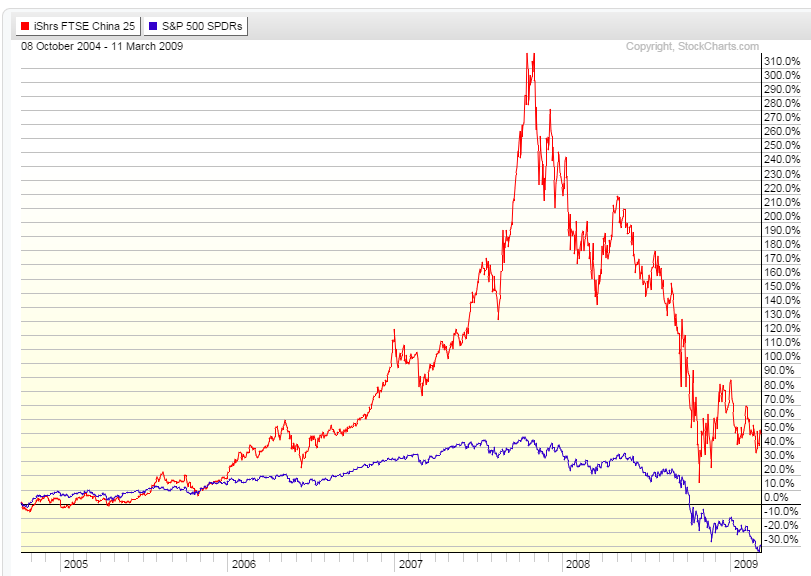"Cab drivers, housecleaners, college kids and Buddhist monks are opening brokerage accounts and speculating in stocks for the first time, says ChinaDaily.com.
The Shanghai composite A index — open only to local Chinese investors — is...up 50% so far this year. Those are big gains compared with the few choices available to Chinese investors, such as bank deposits and 10-year government bonds yielding just 3%, says Alec Young, international stock analyst for Standard & Poor's.
Signs of froth are prompting investors to debate the fallout that markets around the globe may experience if the bubble in China bursts.""Still, the buy-now mentality of China's growing army of amateur investors smacks of speculation. Almost 4.8 million retail accounts were opened in April, 835,500 more than in the past two years combined, says China Securities Depository and Clearing. Top Chinese politicians and central bankers are warning that "chao gu," the Chinese brand of day trading that means "stir-frying stocks," is a mania."
Those lines were written in May of 2007:
http://usatoday30.usatoday.com/money/markets/2007-05-20-china-markets_n.htm
Back then, China's stock bubble inflated further over the summer of 2007, peaking in October 2007 around the same time as U.S. markets and the S&P 500. But while it took another 11 months for the collapse of Lehman Brothers to spark the big market crash in the U.S., in China the crash began in early November 2007 and, except for a sucker's rally in April 2008, continued virtually unabated for an entire year.
The following chart shows vividly how the 2007-2008 Chinese stock boom and bust dwarfed the rally and 2008 crash on Wall Street:
[Chart courtesy of StockCharts.com]
The red line is FXI, the index fund tracking Chinese stocks. The blue line is SPY, the main S&P 500 index fund.
The Chinese stock bubble this time is unlikely to inflate as high as it did in 2007: the level of uncertainty among investors globally right now is probably enough to rein in such extreme excesses on the Hong Kong market. That will not stop the speculative frenzy on the Shanghai market, but it will put a certain limit on it. (The "Shanghai premium" for stocks listed on both exchanges has been about 30-40% above Hong Kong values.)
Still, even without the extra inflation of the bubble such as happened in China in August-October 2007, the bursting of it will be plenty dramatic and painful as it is.

No comments:
Post a Comment